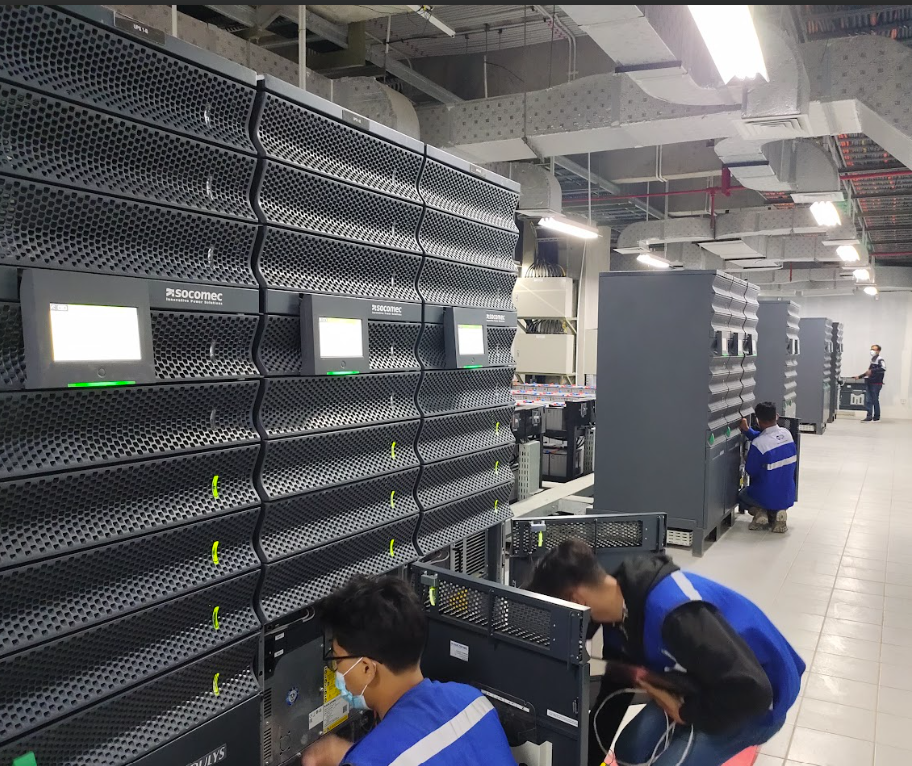Artificial intelligence (AI) has significantly transformed the healthcare industry, unlocking new opportunities for faster diagnoses, more precise treatments, and improved operational efficiency in hospitals and clinics. However, the rapid development of this technology also brings new challenges, particularly in terms of the IT infrastructure that supports it. In Indonesia, the digital transformation of healthcare requires not only advanced technology but also reliable power infrastructure, such as Uninterruptible Power Supply (UPS) for medical equipment.
This article explores how AI in healthcare is accelerating the need for IT infrastructure updates and the critical role Distributor UPS Alat Medis plays in supporting modern medical technology in Indonesia.
AI and Radical Changes in Healthcare
AI is a key player in digitizing healthcare. From big data analytics to real-time patient monitoring, AI technology helps doctors and medical staff provide faster and more accurate care. For example, AI algorithms can analyze radiology images and detect abnormalities at an earlier stage, faster than human counterparts.
However, to achieve the full potential of AI, hospitals’ IT infrastructure must be upgraded to handle intensive computing workloads and ensure continuous power supply. UPS systems are essential to keep medical equipment and AI servers running during power outages.
IT Infrastructure Challenges in Hospitals
Implementing AI in healthcare requires a reliable infrastructure. The greatest challenges in adopting this technology are often linked to inadequate IT infrastructure. Here are some key challenges faced:
- High Computing Demands: AI requires heavy computational power to analyze large amounts of medical data. This demands robust servers and reliable storage systems.
- Uninterrupted Power Supply: Hospitals cannot rely on unstable power grids. UPS systems are crucial for ensuring that medical equipment such as ventilators, heart monitors, and MRI machines remain functional during power failures.
- Data Security and System Protection: AI’s processing of sensitive health data increases the need for strong data protection and system security against cyber threats.
The Role of Distributor UPS Alat Medis in Indonesia
This is where Distributor UPS Alat Medis plays a critical role. These distributors not only provide UPS systems designed specifically for medical equipment but also ensure installation, maintenance, and technical support to keep hospitals powered up. Here’s why medical-grade UPS is essential in supporting AI’s growth in healthcare:
- Reliability for Critical Systems: Critical medical equipment such as ventilators and surgical tools require consistent and reliable power. Medical-grade UPS ensures that these devices remain operational, even in emergencies.
- Protecting Sensitive Medical Data: Servers processing medical data and AI algorithms need extra protection from unexpected power outages. UPS keeps these systems running, preventing data loss or system damage.
- Operational Efficiency: With support from Distributor UPS Alat Medis, hospitals can ensure efficient, uninterrupted operations, allowing AI technologies to function optimally without interruption.
- After-Sales Support: Distributors do more than supply hardware; they also offer ongoing maintenance and monitoring services to ensure UPS systems function smoothly and efficiently in healthcare environments.
The Urgency of IT Infrastructure Updates for AI
As hospitals and healthcare facilities in Indonesia adopt AI-driven technologies, the need for robust IT infrastructure upgrades becomes even more pressing. Facilities must evaluate their power systems to ensure they meet the increased demand for electricity required by AI-powered medical systems. Hospitals that integrate AI technologies with Internet of Medical Things (IoMT) devices also require continuous power to maintain the real-time functionality of connected medical devices.
UPS systems are crucial in protecting connected devices from power disruptions, allowing AI and IoMT systems to operate seamlessly during patient care.
Long-Term Benefits of IT Infrastructure Updates
Updating IT infrastructure and ensuring reliable UPS support brings substantial long-term benefits to Indonesia’s healthcare system:
- Reduced Diagnostic Errors: AI’s ability to accurately analyze medical data reduces diagnostic errors, allowing hospitals to offer more precise, personalized care.
- Improved Operational Efficiency: AI streamlines administrative processes and speeds up clinical decision-making, making healthcare delivery more efficient.
- Better Data Security and Protection: With an upgraded infrastructure backed by UPS systems, patient data and sensitive medical information are safeguarded against loss due to power disruptions or system failures.
Conclusion
AI is revolutionizing healthcare in Indonesia, but it comes with challenges related to IT infrastructure and power reliability. Distributor UPS Alat Medis plays a critical role in ensuring that hospitals can implement these technologies without concerns over power disruptions. Updating IT and power systems will ensure that healthcare facilities are prepared for the future of AI-driven patient care.
At Climanusa, we understand the importance of reliable power to support modern medical technologies such as AI. As a leading Distributor UPS Alat Medis in Indonesia, we provide trusted and reliable power solutions to ensure the smooth operation of your medical equipment. Trust Climanusa for optimal and safe power solutions tailored to meet the needs of your healthcare future.
For more information, please click here.
–A.M.G–

